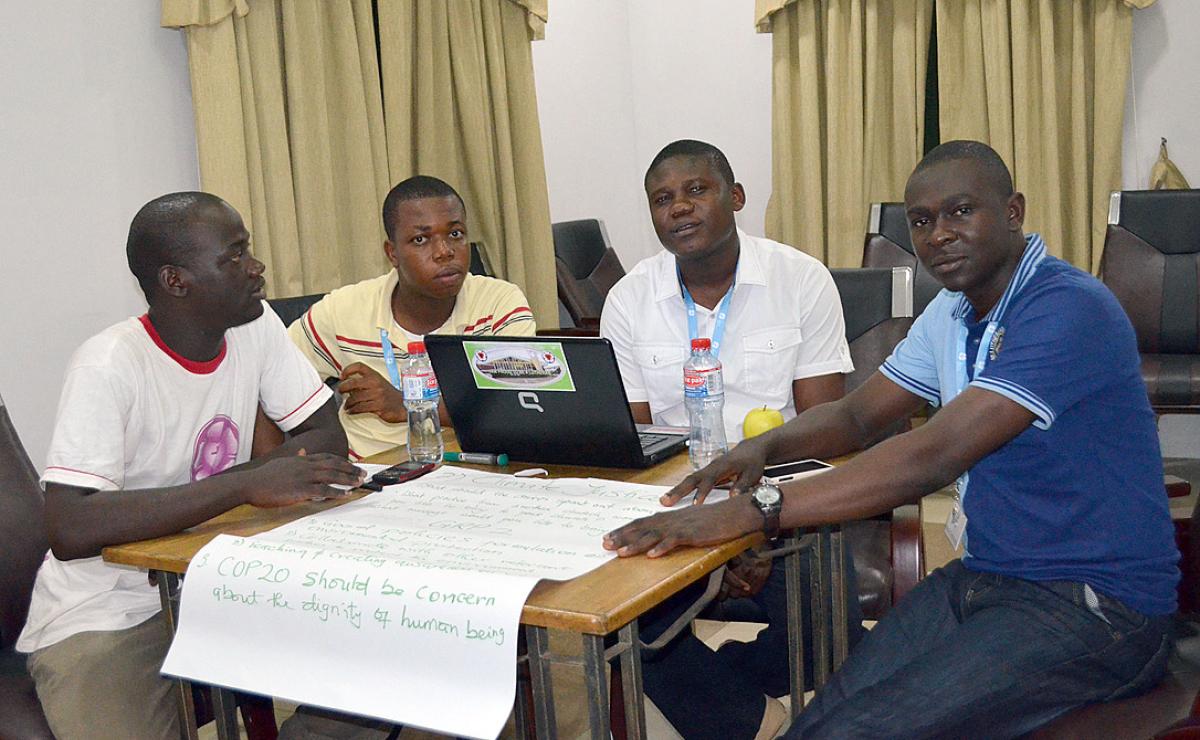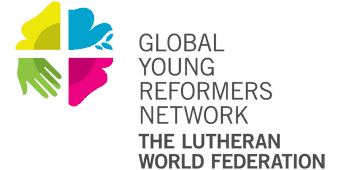Keeping Hope Alive for Africa’s Poor

Land Insecurity and Climate Change Linked to Poverty
(LWI) - Lutheran church leaders and diaconal actors from across Africa have called for renewed efforts to keep hope alive for Africa’s poor.
Meeting at Accra, Ghana, 15-18 May, 48 members of the Lutheran World Federation (LWF) Task Force on Poverty in Africa, diaconal actors from the LWF member churches in Africa and youth said that while hope is fading among the poor, the church must continue to raise concerns about poverty.
Presiding Bishop Paul Fynn of the Evangelical Luther Church in Ghana challenged participants to ask themselves what they can do to alleviate poverty, stressing that church programs must be designed to address the issue. “We must approach the poor with the right hand,” Fynn said.
Geoffrey Kalugendo of Tanzania, a member of the anti-poverty task force set up in 2007, said church programs need to be adapted to attack new poverty trends such as poor wage bill levels, inflation, the commercialization of friendship and the diminishing of hope for the unemployed.
Theology of Promoting Agriculture
The church leaders and activists gathered under the auspices of the Lutheran Communion in Africa for one of a series of sessions on Regional Training on Advocacy on Contemporary Issues in Poverty and Economic Justice in Africa. In parallel, the LWF Youth Advocacy Training on ecological and economic justice took place with 13 participants from 10 African member churches.
The meeting was organized by the LWF Department for Mission and Development (DMD) to focus on land rights and climate change advocacy, and help member churches in the African region to engage on such issues alongside ecumenical and civil society partners and the marginalized.
Participants came from Nigeria, Malawi, Ethiopia, Eritrea, Liberia, Zimbabwe, South Africa, Madagascar, Botswana, Cameroon, Kenya, Tanzania and Ghana.
Zimbabwean Bongi Baker noted that the 2000 land reform in her country was poorly resourced, extremely slow and involved illegal occupations. She said the Zimbabwe Evangelical Lutheran Church has called for a theology of the land that promotes agriculture as a viable option.
Rev. Anicet Maganya of the Evangelical Lutheran Church in Tanzania’s advocacy desk said her church was working with government and other officials in seeking land justice and sustainability in the country.
Sustainable Human Development
In calling for action to create awareness on development issues in Africa, Rev. Dr Elieshi Ayo Mungure, LWF Area Secretary for Africa, stressed that climate change is putting the livelihood of Africans at risk.
The role of the church is to promote sustainable human development that enhances people’s lives and the environment, added Dr Abeya Fufa Wakwoya of the Ethiopian Evangelical Lutheran Church Mekane Yesus’ development and social services arm.
For that reason his church is active on issues such as food security, emergency relief, nutrition, climate change, natural resources management and renewal energy, as well as water, sanitation and hygiene.
Archibon Mfonobong, national youth president of Nigeria, pointed out that the decline in agricultural productivity in his country was linked to ecological issues such as unpredictable weather, deforestation and flooding.
In hearing descriptions of the irregular weather and its devastating effects on the economy, people and livestock across the African continent, including torrential rains, deforestation, soil erosion and food shortages, the participants pledged to utilize the resources of the churches to counter climate change.
